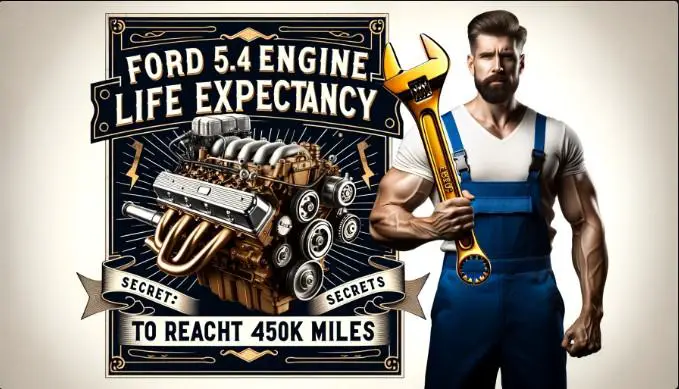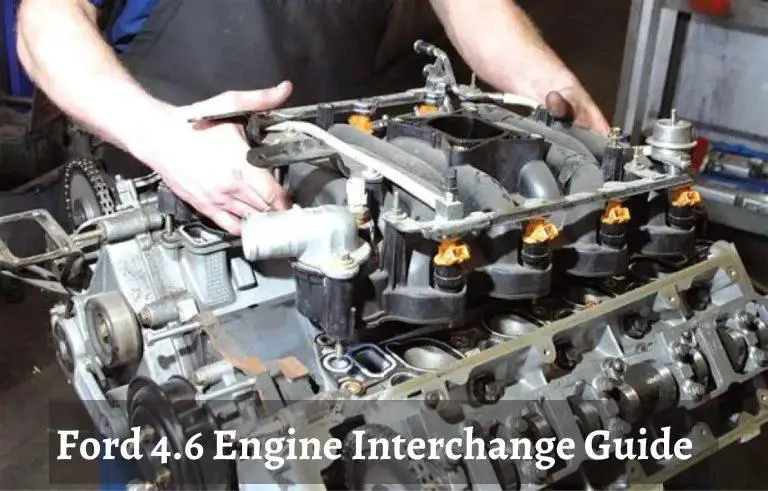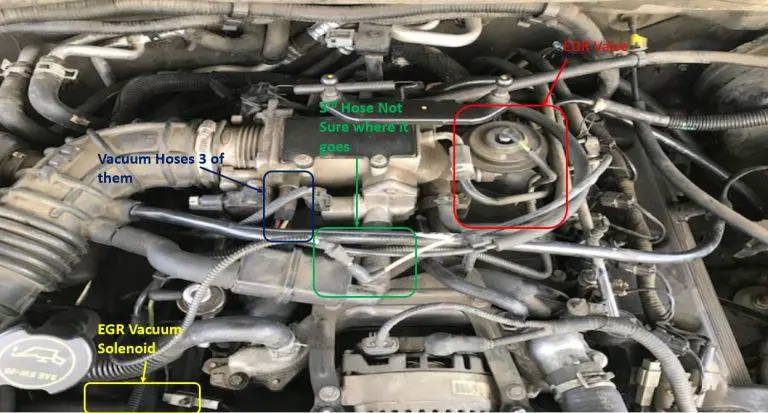Ford 5.4 Engine Life Expectancy: Secrets to Reach 450K Miles
Last Updated on by Tarek
A Ford 5.4 engine typically lasts between 150,000 and 300,000 miles. However, with proper care and maintenance, some have even reached the 450,000-mile mark.
The 5.4L was built to provide over 300k miles before anything needed replacement. The thing that usually takes out the motors is the lack of oil changes.
Some say that you should be able to get 250,000 miles out of it, assuming that you do the proper maintenance and don’t abuse it all the time.
These engines came in the F-150 from 2004 all the way up through 2010
In this guide, we’ll cover:
- Tips to extend the life of your engine.
- Common problems and how to solve them.
- Advice for buying a used Ford vehicle with a 5.4L engine.
Stay tuned to find out how to get the most miles out of your Ford 5.4 engine.
How to Extend the Life of Your Ford 5.4L Engine
Looking to make your Ford 5.4L engine last as long as possible? You’re in the right place. We’ll share actionable tips to help you keep that engine running smoothly for years to come.
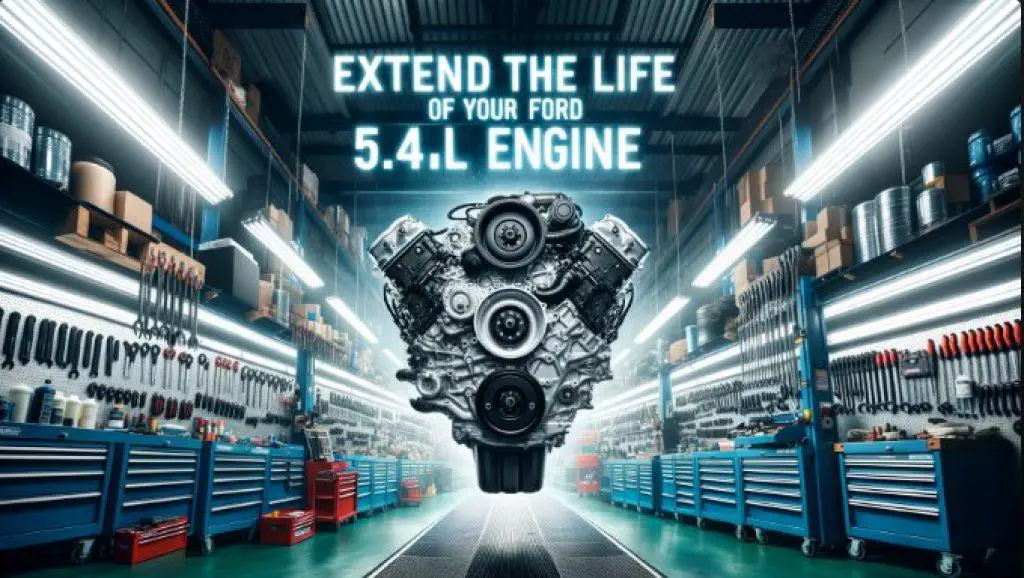
Importance of Regular Oil Changes
| Why It’s Crucial | Recommended Frequency |
|---|---|
| Fresh oil lubricates the engine, reduces friction, and dissipates heat. | Every 5,000 to 7,500 miles, depending on your driving conditions. |
Choosing the Correct Type of Oil
| Recommended Type | What to Avoid |
|---|---|
| Heavier oils can lead to poor mileage and performance. | Heavier oils can lead to poor mileage and performance. |
Regular Engine Inspections for Leaks
| Common Leak Points | Frequency |
|---|---|
| Valve covers, oil pan, and timing chain cover. | At least once a month or before long trips. |
Periodic Engine Tune-Ups
| What’s Included | When to Do It |
|---|---|
| Cleaning of spark plugs, fuel injectors, and throttle body. Adjustment of timing and idle speed. | At least once a year or every 12,000 miles. |
Fuel Injector Maintenance
| Signs They Need Cleaning | How to Clean |
|---|---|
| Poor mileage, sluggish acceleration, and engine misfires. | Use of a quality fuel injector cleaner. |
Avoiding Excessive Idling
| Why It’s Bad | What to Do |
|---|---|
| Excessive idling can lead to fuel wastage and increased engine wear. | Turn off the engine if you anticipate idling for more than a minute. |
Moderate Driving Tips
| Acceleration | Braking | Terrain |
|---|---|---|
| Avoid flooring the gas pedal. | Don’t wait until the last moment to brake. | Try to avoid driving in excessively dusty or muddy conditions. |
4 Most Common Ford 5.4L Engine Problems And Solutions
Ever wondered what troubles might be lurking under the hood of your Ford 5.4L engine? Let’s dive into the most frequent issues and how to address them.
Timing Chain Stretch
Your engine’s timing chain synchronizes the movement of your camshafts and crankshaft. When it stretches, it can lead to erratic engine behavior and lost power.
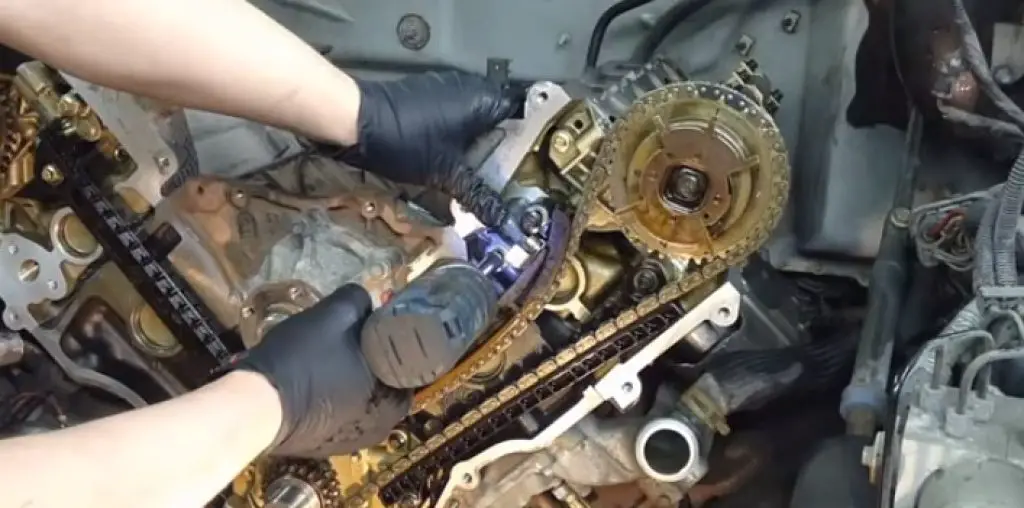
Symptoms
- Engine noise: rattling or ticking sound
- Reduced engine power
- Rough idle
- Check the engine light on
Preventive Measures
- Regular oil changes: Fresh, high-quality oil is key.
- Avoid overheating: Keep an eye on your temperature gauge.
Diagnosis and Repair
Diagnosis Process
- Visual Inspection: A mechanic will start by visually inspecting the timing chain and related components for wear and tear.
- Sound Diagnosis: Listening for a rattling or ticking noise, especially during startup.
- Scan for Trouble Codes: Use of diagnostic equipment to read any engine codes related to timing.
- Timing Chain Tension Check: Manually inspecting the tension of the timing chain.
Repair Process
- Disassemble the Front of the Engine: Remove necessary engine parts to access the timing chain.
- Remove Old Timing Chain: Take out the worn or stretched timing chain.
- Install New Timing Chain: Place the new timing chain, making sure it’s properly aligned.
- Reassemble and Test: Reassemble the removed parts and test the engine for any timing-related issues.
Spark Plug Blowout
A spark plug blowout can occur due to improper tightening or engine overheating. It can lead to severe damage to the cylinder head and piston.
Symptoms
- Engine misfire
- Rough idle
- Reduced engine power
- Increased fuel consumption
- Check the engine light on
Preventive Measures
- Proper spark plug tightening: Ensuring snugness prevents blowouts.
- Quality spark plugs: Invest in the good stuff.
Diagnosis and Repair
Diagnosis Process
- Visual Inspection: Check spark plugs for signs of wear or damage.
- Engine Misfire Codes: Use a diagnostic tool to check for misfire codes.
- Compression Test: To ensure no damage to the cylinder after blowout.
Repair Process
- Remove Damaged Spark Plug: Carefully remove the blown-out spark plug.
- Inspect Cylinder Head: Check for damage to the threads in the cylinder head.
- Insert New Spark Plug: Properly align and torque the new spark plug into place.
- Test Engine: Run the engine to make sure the new spark plug is functioning correctly.
Piston Slap
A piston slap occurs when pistons are loose within the cylinders, causing a range of performance issues.
Symptoms
- Engine noise: slapping or ticking sound
- Reduced engine power
- Increased fuel consumption
- Check the engine light on
Preventive Measures
- Quality oil use: Always opt for quality oil.
- Avoid overheating: Keep that engine cool!
Diagnosis and Repair
Diagnosis Process
- Sound Diagnosis: Listen for slapping or ticking noises during engine idle or acceleration.
- Compression Test: A test to measure each cylinder’s compression level.
- Disassemble for Inspection: If necessary, disassemble the engine to visually inspect the pistons.
Repair Process
- Engine Disassembly: Take apart the engine to access the pistons.
- Replace Pistons: Install new, well-fitted pistons.
- Reassemble and Test: Put the engine back together and run tests for any piston slap sounds or other issues.
Oil Leaks
Oil leaks can come from various parts of your engine, such as the valve covers, timing chain cover, and oil pan.
Symptoms
- Oil spots under the vehicle
- Reduced oil level
- Check the engine light on
Preventive Measures
- Regular engine inspection: Be proactive.
- Tightening loose parts: Don’t let a loose bolt cost you.
Diagnosis and Repair
Diagnosis Process
- Visual Inspection: Look for oil spots under the vehicle and around the engine.
- Oil Level Check: Monitor the oil level using the dipstick.
- Pressure Test: Sometimes conducted to identify the exact location of the leak.
Repair Process
- Identify the Source of the Leak: Pinpoint the leaking part, such as a gasket, seal, or bolt.
- Replace or Repair Leaking Part: Remove the faulty part and install a new one.
- Test: Run the engine and check for any signs of leaking.
Can Putting 275 65R20 Tires on a Leveled F150 Extend the Life of the Ford 5.4 Engine?
Putting 275 65R20 tires on a leveled F150 can potentially transform your f150 with 275 65r20 and enhance the lifespan of the Ford 5.4 engine. These tires offer improved traction and better handling, providing stability and control. Their larger size allows for better ground clearance, reducing strain on the engine and potentially increasing its longevity. Consider this upgrade to optimize your F150’s performance and engine life.
Is Acceleration Shudder a Common Issue in Ford Engines?
Is acceleration shudder a common issue in Ford engines? If you’re experiencing this problem, it’s crucial to get a proper ford acceleration shudder diagnosis. Identifying the underlying cause will help address the issue effectively and ensure the smooth operation of your vehicle. Trusting experts for accurate diagnosis is essential in resolving acceleration shudder concerns in Ford engines.
Tips for Buying a Used Vehicle with a Ford 5.4L Engine
Considering buying a used Ford with a 5.4L engine? Make sure you’re getting a reliable ride and a fair deal by following these tips.
Key Factors to Consider
When considering a used Ford 5.4L vehicle, not all are created equal. Here are the things you need to keep an eye on:
Important Factors to Evaluate
| Service records | Signs of engine problems |
|---|---|
| Indicates how well the vehicle has been maintained. | Engine noise, reduced power, rough idle, check engine light, etc. |
Price Negotiation Strategies
A good deal isn’t just about the sticker price; it’s about knowing how to negotiate.
Strategies for Negotiating Price
| Research | Willingness to compromise |
|---|---|
| Use resources like Kelley Blue Book or Edmunds for vehicle valuation. | Be ready to meet halfway on price and other factors. |
Additional Buying Tips
Finally, some extra pointers to ensure you’re making an informed decision.
Extra Tips for a Wise Purchase
| Pre-purchase inspection | Negotiation tactics | Patience during the buying process |
|---|---|---|
| Get the vehicle inspected by a qualified mechanic. | Don’t hesitate to negotiate; most sellers are open to it. | Don’t rush; wait for the right vehicle at the right price. |
Read Also:
Conclusion
So there you have it, folks! You’ve got the lowdown on making your Ford 5.4 engine last the long haul. From dodging common problems to acing the art of negotiation for a used vehicle, you’re now armed with practical tips to hit that dream milestone of 450K miles.
It’s not rocket science; just a bit of care and know-how can go a long way. Ready to take the wheel? Drive safe and enjoy the journey!

